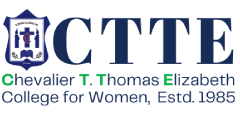


✅ Eligibility Criteria
Established in 2016, the Department of Chemistry offers a strong foundation in organic, inorganic, physical, and analytical chemistry. The program integrates theory with laboratory experiments, preparing students for careers in research, pharmaceuticals, environmental science, and industrial chemistry.
Programme Highlights
Career Opportunities
Graduates can work as Chemists, Lab Analysts, Quality Control Officers, Pharmaceutical Scientists, and Environmental Analysts. Many pursue higher education (M.Sc. Chemistry, M.Tech, MBA) or specialized fields like Biochemistry, Nanotechnology, and Forensic Science.
